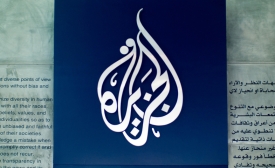arab media

Independent research consultant, Jihad Fakhreddine, examines the overall performance of Alhurra financed by the U.S. Congress.

Joseph Braude explains the popularity of RT in Arab countries and what American media can do to counter it.

Philip Seib looks at the history of Al Jazeera and why it is a point of contention for some Middle Eastern countries.

A new book by Naomi Sakr, Transformations in Egyptian Journalism (I.B. Tauris, 2013), should be required reading for American public diplomacy specialists who want to engage Egyptians through the media.
One lesson of the Arab Spring is that news now travels very fast indeed. Within hours of the 20,000 copies of the second issue of Egypt Independent being pulped, the story had spread not only in Egypt, but globally, as the article in London's The Independent attests.
As one of the first countries to recognize the National Transitional Council, Qatar supplied the rebels with arms, uniforms, and $400 million in aid, while also helping the rebels sell their oil. Not least, Qatar provided invaluable moral support with its exhaustive coverage of the rebels on the Al Jazeera TV network, the emir’s powerful public diplomacy wing.
Despite the fears of some Americans, Arab television networks such as Al Jazeera do not promote anti-American feelings among all their viewers, according to a new study.
The study also revealed that Arab media was helping to define the issue for Westerners and was expected to be more open and free. It also highlighted that people in the West view Arabs more favourably and ascribed recent activism to familiar aspirations.







